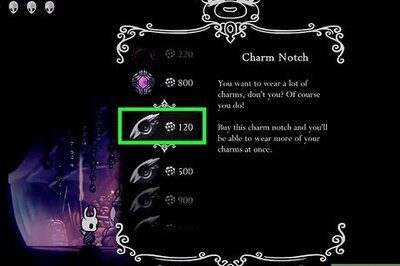
views
Washington: In the first war crime trials being held after the second world war, a military jury on Thursday convicted Osama bin Laden's former driver, Salim Ahmed Hamdam, for providing material support to terrorism but tossed out a more serious charge of conspiracy.
The trial is the first demonstration of the Bush administration's system for prosecuting alleged terrorists.
Hamdan faces a maximum sentence of life in jail as his trial now goes into the sentencing phase.
The Pentagon-selected six-member jury reached a split verdict after deliberating for eight hours over three days.
The Yemeni national's trial, the first before the special tribunals created by President George W Bush to try suspects in the "war on terror", was being seen as a crucial test of the controversial military commission system. The White House was quick to react, saying that Hamdan received a "fair trial".
During the two-week-long proceedings, Justice Department prosecutor John Murphy described Hamdan as an al-Qaeda warrior.
"He has wounded, and the people he has worked with have wounded the world," Murphy told the jury.
The defence tried to make the point that Hamdan was only a driver for Osama bin Laden and not at any higher position in the al-Qaeda leadership.
"We will capture or kill Osama bin Laden some day. You should not punish the general's driver today with the crimes of the general," his court-appointed military attorney, Navy Lieutenant Commander Brian Mizer, told the court.
Attorneys for Hamdan argued that the presiding judge allowed evidence that would not have been admitted by any civilian or military US court. They also said that the interrogations at the centre of the government's case were tainted by coercive tactics, including sleep deprivation and solitary confinement.
Hamdan was caught in Afghanistan in November 2001 and taken to Guantanamo prison camp in May 2002.
The Pentagon accused him of transporting missiles for al-Qaida and helping
Bin Laden escape US retribution following the September 11 attacks by driving him around Afghanistan.
The indictment against 40-year-old Hamdan said he met Bin Laden in Kandahar in 1996 and "ultimately became a bodyguard and personal driver" for him.
Under the US Military Commissions Act, it takes a two-thirds majority or four of the six officers on the jury panel to convict a suspect. The commissions were invalidated in 2006 by the Supreme Court, but were restored a few months later by the US Congress.
Hamdan's trial was a test, the first under a new set of commission guidelines crafted by the Pentagon after the Supreme Court in 2006 threw out the first batch as unconstitutional.
Hamdan's case, and perhaps others, will now climb the ladder of America's federal appeals courts, which may rule that the entire exercise in trying Hamdan was meaningless and order the Defense Department to once again refashion the procedures by which the commissions operate. They could be ordered to try everything one more time. A court could also find that the prosecution of Hamdan is flawed, marred by improper decisions by the judge involving the admission of evidence, access to witnesses and the application of domestic and international law, the Chicago Tribune reported.














Comments
0 comment